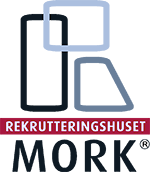



Our employees are valuable ambassadors who represent Rekrutteringshuset Mork on a daily basis. It is your competence and the quality of the work you perform that makes us a reliable supplier of staffing and recruitment services.
We always ensure that you have a safe and good start to a new assignment. You should feel seen and heard, and we will do our best to give you good advice on the way to a meaningful job. We believe that good communication and personal follow-up are the keys to a successful assignment.
Health, Safety, and Environment (HSE) and well-being are important in any workplace. We facilitate that the customer you are working for takes care of you in the best possible way, gives you the right training, ensures your safety, and that you enjoy your workplace.
Communication is important. Therefore, it is important for us to have a good dialogue with both you and the customer. Concrete and constructive feedback makes it possible to optimize how you perform your work and how you enjoy it.
Our values:
Honesty - Responsibility - Humanity
We greatly appreciate the work you do for us!
When you reach the interview round, it shows that you have already convinced the interviewer "on paper" that you are capable of doing the job. The interview is your chance to convince them that you are the right person.
The purpose of the interview is to uncover whether you possess the necessary skills and sufficient knowledge to fill the position. At the same time, the interview will give you an opportunity to find out if this company and this job is really something you would like.
Remember to prepare well. Read about the company and focus on creating a good first impression. Your appearance and behavior can prejudice the interviewer. Therefore, make sure to make the crucial first impression as positive as possible. Be attentive, properly dressed, and polite.
Bring copies of your CV, diplomas, certificates, and references. Allow plenty of time and be sure you know where you are going - remember to be punctual. When you meet the person who will interview you, you should shake their hand. Be calm, polite, honest, and sincere. Show interest in the job and do not answer questions you do not understand. Ask the interviewer to explain the question. Speak clearly and use positive words. Maintain eye contact with the interviewer. This inspires trust.
End the interview with a smile and a firm handshake!
Remember, you should be convincing, but don’t brag too much about yourself!
It's important to be able to show insight regarding your strengths and weaknesses.
"Honesty is the best policy"
Good luck!
An application should have the design and layout of a letter. Use a standard font and normal letter size.
The heading should always contain the title from the job advertisement.
| Eks | Advertisment: |
Skilled and Experienced Car Mechanic Wanted |
| Application: | Application for the position of Car Mechanic |
Always refer to where you saw the job advertisement.
The application should be concise, with information about why you are applying for the particular position, and what qualities, qualifications, and experiences you possess that make you suitable for this position.
An application should be one page long, and not too detailed. Read the job advertisement carefully, and address what is being asked for.
The abbreviation CV comes from the Latin term Curriculum Vitae.
A CV is a concise description of who you are and what you have done so far in your life.
Before you start writing your CV, it is important that you first analyze the job advertisement carefully. This will give you valuable information about the competencies, background, values, and qualities that the company is looking for among the applicants.
If you can identify these criteria and desires that the company is looking for, it will be much easier to write a CV that accurately targets its audience.
Good luck!